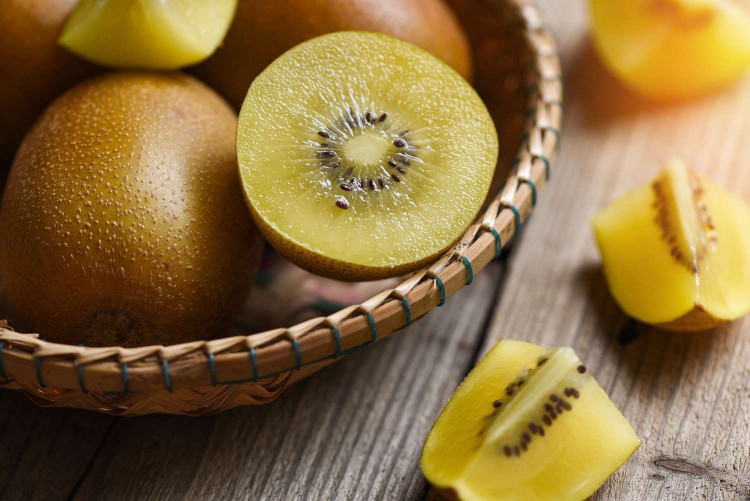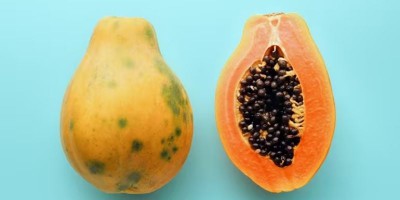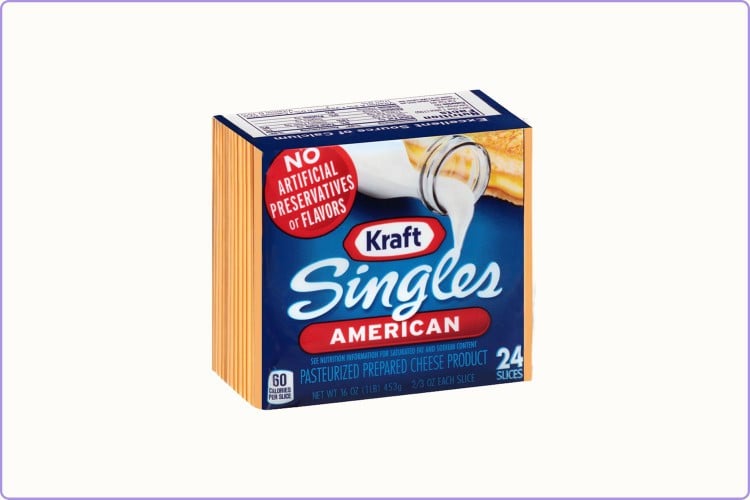Is Eggnog Healthy? Registered Dietitians Weigh In on the Seasonal Drink
- Many people enjoy eggnog—a creamy beverage made from milk or cream, sugar, and egg yolks—around the holidays.
- Eggnog may not be considered a "health food," but the drink does have some nutritional benefits including certain vitamins and protein.
- Traditional eggnog is also high in sugar and fat, and for that reason, it's best to drink in moderation as a dessert.
The holiday season is here—decorations are coming out of storage, cookies are in the oven, and the eggnog is flowing.
In the U.S., the seasonal drink is extremely popular: In 2019, Americans spent $185 million on eggnog alone. But its nutritional profile might have some people second-guessing whether they should have a second (or first) glass.
The creamy beverage is made from a mixture of milk or cream, sugar, and egg yolks. Depending on who makes it (whether it’s homemade or manufactured), it also has a variety of warming spices, like vanilla, nutmeg, or cinnamon. The drink typically comes chilled and may also come “spiked,” or with a splash of rum, whisky, or brandy.
Despite its richness and somewhat custardy consistency, can eggnog ever be considered healthy or good for you? Here’s what registered dietitians want you to know.

GMVozd/Getty Images
Health Benefits of Eggnog
If you’re an eggnog fan, you know that the plus side of enjoying a glass of eggnog on a cozy winter day is that it can satisfy your nostalgic craving after a few sips.
However, it might be a stretch to say that eggnog is an ideal drink to enjoy when trying to support your health. Though when consumed in moderation and as a part of a balanced and healthy diet, it can be enjoyed once in a while.
“While eggnog is not necessarily a ‘health food’, there are nutritional benefits coming from milk and cream, which contain protein and essential vitamins including calcium, and vitamins A, D, E and K,” Ariel Rasabi Cohn, MS, RD, LDN, founder of Whole Health Nutrition, LLC, told Health. “The high fat content of the drink can also help your body absorb these essential nutrients.”
The dairy in eggnog can also add protein to your diet, as can the eggs—those also provide B vitamins as well as choline, a nutrient that supports brain health, said Cohn.
The drink also has quite a few antioxidant-packed spices, like cinnamon and nutmeg, but they aren’t always added in large enough quantities in certain store-bought products. However, if you make your own eggnog and use a heavy hand with these spices, you may be able to reap some anti-inflammatory benefits. (Keep in mind: If you add pro-inflammatory ingredients, like sugar and alcohol, those benefits may be canceled out.)
Eggnog Nutrition Data
Serving size: 1/2 cup (120 mL)
- Calories: 200
- Protein: 4 grams
- Fat: 10 grams
- Carbohydrates: 24 grams
- Total sugars: 24 grams
- Added sugars: 19 grams
- Sodium: 70 mg
- Cholesterol: 70 mg
Health Risks Associated With Eggnog
Any risks associated with eggnog depend on how it was made—whether it was store-bought or made at home.
For homemade eggnog, when it’s made with unpasteurized eggs, the drink can harbor Salmonella bacteria, which can cause gastrointestinal illness. It’s usually transmitted to humans through contaminated water or foods, particularly raw or undercooked meat, poultry, eggs, or egg products.
You should also make sure your store-bought eggnog has been pasteurized: “If you are purchasing eggnog from the stores, look for one that has been pasteurized to reduce your risk of contracting a foodborne illness,” Roxana Ehsani MS, RD, CSSD, LDN, a board-certified sports dietitian, told Health.
Less urgent, but still concerning: Eggnog has a high sugar and fat content. “While there are different eggnog recipes, most eggnog will typically contain high amounts of fat from cream and milk, and added sugar for sweetness,” said Cohn.
The American Heart Association recommends that people consume no more than 5% to 6% of calories from saturated fat every day to support heart health. For a person following a 2,000-calorie diet, that’s about 13 grams of saturated fat per day.
For sugar intake, the AHA also suggests people limit their added sugar to no more than 6% of their daily caloric intake. For women, that’s about 6 teaspoons of sugar or 24 grams; for men, it’s about 9 teaspoons or 36 grams.
Generally speaking for females, one serving of eggnog provides almost 40% of the saturated fat allotment for the day and around 85% of the daily limit for added sugar.
Finally, when you add alcohol to your nog, you add a caloric ingredient that, when consumed over the long term, is linked to a slew of potential health outcomes, including an increased risk of certain cancers, heart health concerns, and a weaker immune system.
How to Enjoy Eggnog While Supporting Your Health
If you are focused on supporting your overall health, but can’t imagine ringing in the holiday season without a glass of eggnog in hand, there are ways to enjoy the traditional drink in a healthy, balanced way.
Making a booze-free eggnog is a simple way to reduce your caloric intake by almost 100 calories. If a virgin nog is simply not an option, try cutting your alcohol serving in half.
Making your eggnog with stevia instead of sugar can also help make this drink more blood sugar-friendly. And swapping out the cream with low-fat milk can help reduce the saturated fat content in your drink.
If you lean on pre-made eggnog, more brands are creating “better for you” nogs to meet a wide variety of diets. Malk has created an eggnog-like drink that is dairy-free, organic, and free from gums or fillers. Califia Farms offers a creamy almond milk-based eggnog-type drink that contains only 50 calories per serving. And Organic Valley offers an organic dairy-based nog made with low-fat milk.
And if you simply can’t do without your traditional eggnog recipe, “it’s fine to include it into your day, just be mindful of the caloric content and not make it an everyday thing,” said Ehsani. “Enjoy it as you would any other dessert or sweet treat.”










